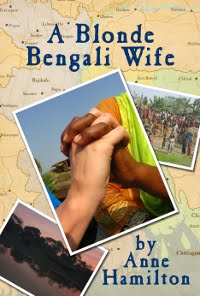It's been the first summer in five years that I haven't been working on my PhD and (poor title to this post notwithstanding; at the very least it should read 'the-lower-but-hopefully-adequate-end-of-highbrow)** it has gone by in something of a daze. I am delighted that it's given me time to read some gems of non-PhD related fiction, the absolute best being 'The Days the Crayons Quit' and its sequel 'The Day the Crayons Came Home', both written by Drew Daywelt and illustrated by Oliver Jeffries. Seriously - look out for them; I promise equal appeal for 5 and 45 year-olds.
And, even better, it has given me time to spend on Claire Morley's debut novel 'Tindog Tacloban' published TODAY as an ebook from Amazon It's engaging, its heartfelt, and there are chapters that still find me reading as fast as I can with my muscles clenched, rooting for 11 year old, Lika Faye...
Right now though, I feel like a throw-back to the dark days of primary school; spending too much time hoping people will Like Me and Follow Me... I'm sure I'll soon make sense of Twitter (@AnneHamilton7 please follow me - I might be spurred into doing things worth following) and revive the somewhat dormant Facebook page for 'A Blonde Bengali Wife' (https://www.facebook.com/ablondebengaliwife please Like It - there is a reprint coming; more on that next month).
But back to the PhD. People are asking me about it and I can almost face looking at it again, if not describing it. So, here for better or worse is the Abstract - make of it what you will but if you mention it to me, I don't expect comprehension but please fake enthusiasm... I promise to Follow you and Like you!
Anne x
**I'll let you know after the viva.
Abstract
A World of Their Own? The Novel and the
Total Institution comprises an exploration of the
sociological concept of the Total Institution with particular reference to
its relationship with English literature, followed by the presentation of Chasing Elena, an original novel. The term ‘Total Institution’,
attributed to Erving Goffman (1961), encapsulates an environment in which a
large number of individuals participate in an enclosed and formally
administered way of life. Chapter 1
of the critical text defines the Total Institution and sets the scene for Chapter 2 which examines selected
literary texts that feature life in all-encompassing institutions and
considers Goffman’s ‘moral career of the inmate’ in terms of the experiences
of the fictional characters. Chapter 3 is a literature review that
reflects upon Goffman’s work and expands the model and metaphor of the Total
Institution. It includes my original
interpretation, called here the ‘New Total Institution’. Chapter
4 offers a close reading of contemporary literary texts in which this new
interpretation is examined for strength and sustainability when applied to a
belief system, a social structure and an isolated physical environment. Chapter 5 considers the relevance of
the (New) Total Institution, initially, in terms of the family. It then
highlights specific groups of people who live in constrained and constraining
circumstances: those affected by domestic abuse and displaced persons such as
refugees, respectively. Chapter 6
turns to the (New) Total Institution and the novel, looking at writing styles
and techniques, the experience of the writer and the reader, and the voice of
the child as protagonist/narrator. Epilogue
describes the ways in which the (New) Total Institution has informed the
writing of Chasing Elena. Following
the epilogue, this novel is then presented in its entirety.
|
